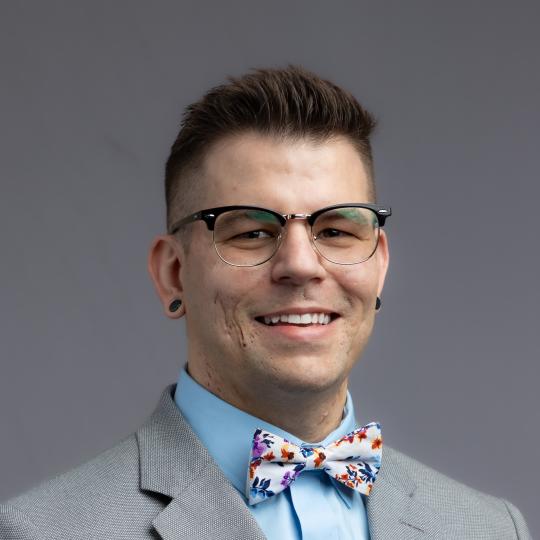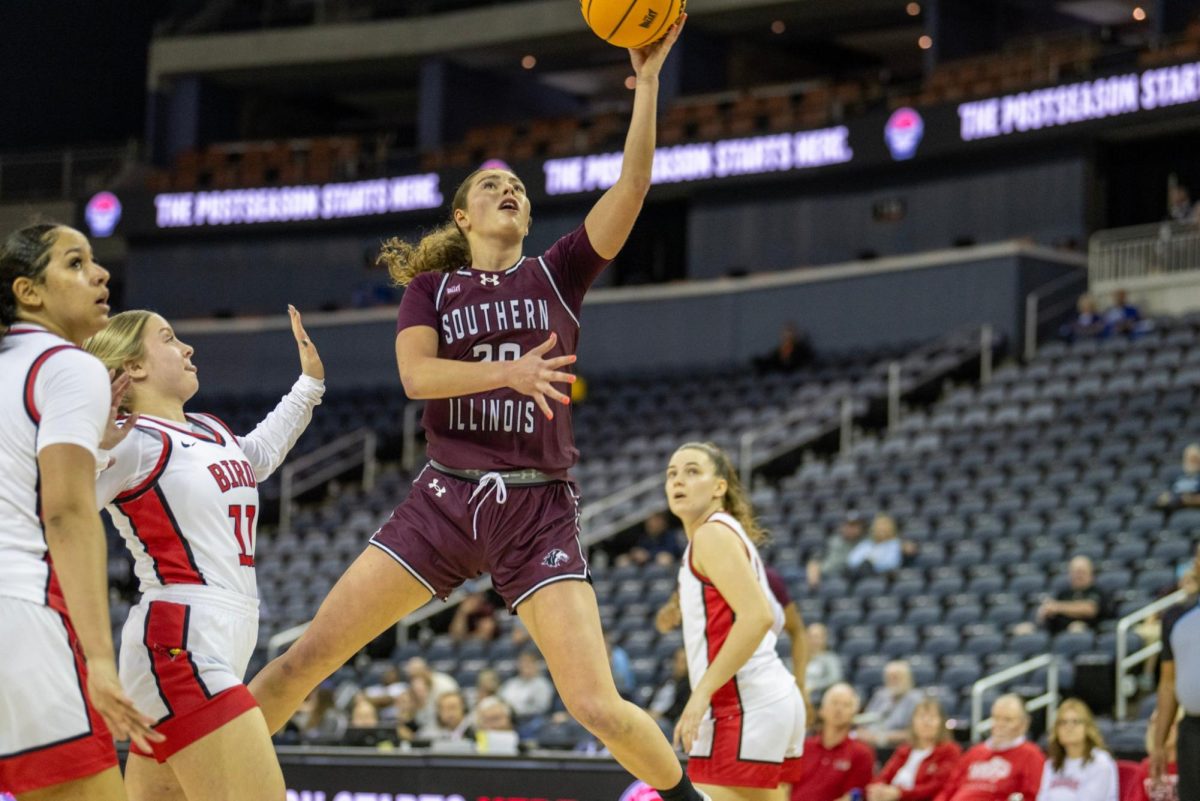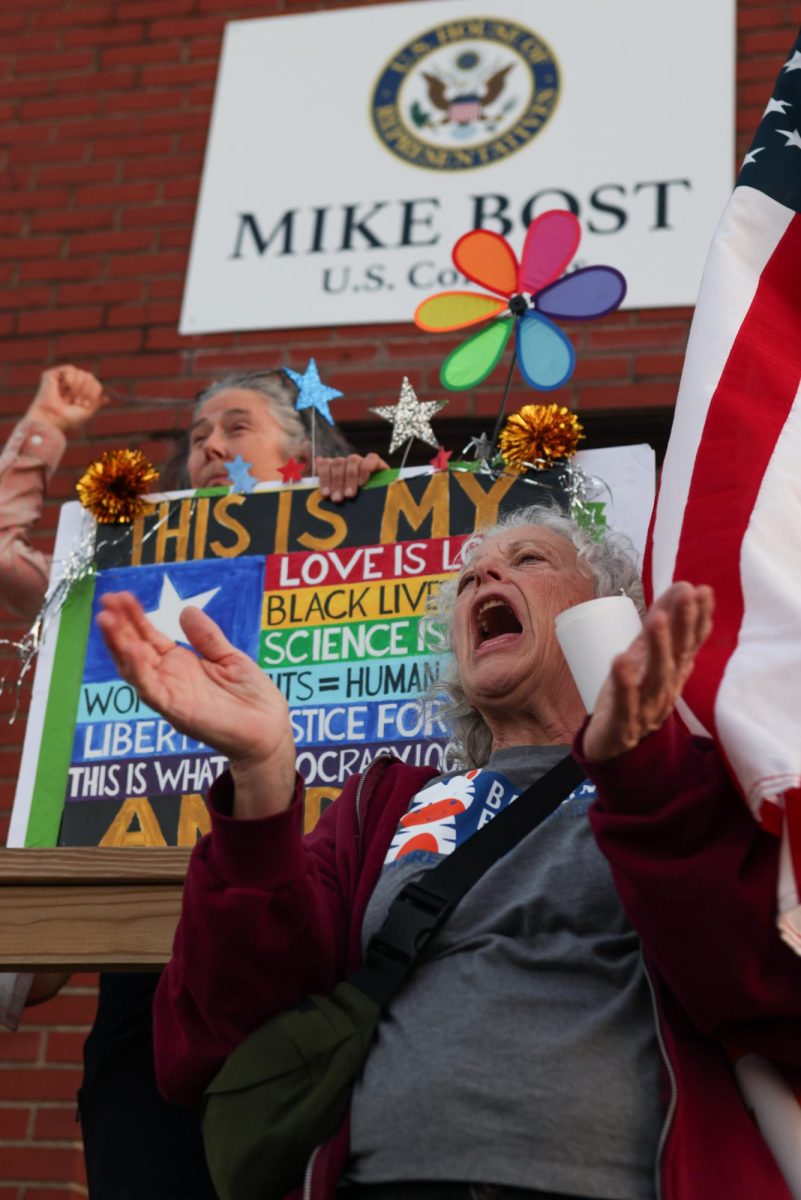Meeting highlights students’ concerns
February 18, 2013
Student voices were heard during a State of the Black Student town hall meeting.
A five-student advocate panel and university officials gathered to discuss concerning issues such as campus safety, diversity, involvement and retention. Event coordinators Dorissa White, a junior from Chicago studying social work, and Demetrios Layne, a junior from Itasca studying physical education, said they wanted students to come together to bring students’ realities and issues to light in hope of realistic and fair solutions.
Chancellor Rita Cheng said she hopes meetings similar to Wednesday night’s become tradition.
Advertisement
“One of the questions we might want to pose as administrative staff is ‘How can we be more receptive?’ We have open door policies, but how can we expand them to be more open door?” she said. “This is all about making SIU the very best place it can be.”
Students used the meeting to express campus safety concerns, targeting the fall semester’s two bomb threats as well as the Dec. 2 Brush Towers fight.
“It’s not so much about whether or not I feel safe. It’s about ‘How safe do I feel?’” said panelist Rashionda Carlisle, an undecided freshman from Belleville. “With residence hall incidents, senior staff (and) hall directors, I understand that they have a lot on their plate already, but what are they doing to make sure that these things aren’t reoccurring?”
Panelist Benjamin Smith, a sophomore from Riverdale studying public relations, said prevention is the key. Students and staff should realize SIU is not the only school that experiences violent acts, he said, so everyone should start to examine why they occur and how to prevent them.
“Doing research, what I’ve come to find out is that most of the time violence occurs because of poverty,” he said. “Maybe it’s because of enrollment and the process of who we are letting in and where are they coming from. Ideas like that might help us prevent violence instead of trying to find solutions afterwards.”
Panelist Ore Macaulay, an undecided graduate student from Aurora, said the university’s Polar Bear water stations prove staffs interest in student safety, but she questions whether the same treatment is given to all student populations.
“There are events being held when the police are ready and waiting,” she said. “A lot of times you are going to find issues when you look for them. I just feel as though, if the Carbondale police and DPS are going to ensure the safety, can we have it blanketed, have it color blind (and) have it on all events?”
Advertisement*
However, Smith said students should remember their obligation to keep the campus safe as well.
“We have to make sure that we don’t give them a reasontodoanyofthosethings,”hesaid.“Wehavetobe responsible adults and be better as a community and grow and make sure we look out for each other.”
Peter Gitau, associate vice chancellor for student life and intercultural relations, said the administration has already taken steps to address the panel’s concerns.
“Students can expect to see continuing changes in programs and these views,” he said. “You can’t have a town hall meeting like this and leave and expect that nothing gets done.”
According to the university’s website, the university has more than 400 Registered Student Organizations. The panel was also asked about their outlook on these RSOs.
Nicolette Shegog, a junior from Chicago studying journalism, said it was difficult to find her place at the university as a transfer from a junior college.
Shegog said her first semester at the university was not what she anticipated.
“As a transfer student who was excited about coming to this university, I have been very disappointed,” she said.“Ihadtogooutofmywayto find the opportunities that are offered for me to get involved, and that’s a problem.”
Macaulay and Carlisle agreed RSO involvement gave them a sense of belonging on campus.
“Being a part of these organizations with people such as students who have gone through that same path helped me as far as where I’m at now,” Layne said. “As far as retention, yes, being involved in RSOs has kept me here.”
Provost John Nicklow said everything the panel addressed benefited the university.
“I think it’s wonderful for the community, us, faculty, administrators, everyone to hear viewpoints in such an open meeting,” he said. “Any time we can come together and share our concerns, ideas, suggestions, it makes us a tighter and better community.”
Aside from campus involvement, thepanelencouragedstudentstotake the initiative to embrace the city.
“Be willing to get out of your comfort zone and of SIU and get to know people in the community because they can help you,” Shegog said. “You’ll be surprised at what they can do for you before Southern can do it for you because we have a budget as well.”
Layne said he is a Carbondale
HighSchoolfootballcoach,andhis involvement has made the university hishomeawayfromhome.
“I have gone out and taken the initiative to make sure that my opportunities and network is met not only through the university but where I’m at,” he said. “I feel that there are more learning experiences outside of the classroom, so embracing the community is essential.”
Community members attended the meeting as well.
Joseph Josen, a Carbondale City Council candidate, said campus and community dialogue is essential to assist students with their networking base.
“SIU is the lifeline here, and we don’t want a bad reputation between the students and the residents because it’s hindering attendance,” he said. “I’m proud of our university, and Carbondale is a good place to live.”
The student panel also addressed concerns such as dining hall hours, textbook prices and potentially merging University College and the Center for Exploratory Student Advisement.
Cheng said in her closing comments that she is impressed with the panel as well as the university’s growth.
“This is the kind of feedback we need because we’re not perfect as an institution,” she said. “We’ll never be perfect, but we can learn a lot from the experiences of students.”
Gitau said he felt the meeting was very productive, and hearing student opinions gives off a sense of urgency and makes the issues less vague.
“The majority of the time was not administrators talking at students, but it was students responding and sometimes challenging each other,” he said. “To me, it’s a demonstration and a sign that our students are learning and are engaged in issues, problem solving.”
Advertisement









